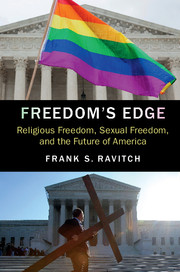Book contents
4 - County Clerks and Other Government Employees
Published online by Cambridge University Press: 05 September 2016
Summary
INTRODUCTION
The story of Rowan County, Kentucky, clerk Kim Davis made headlines across the country in 2015. Almost everyone is familiar with Davis's refusal to provide marriage licenses after the U.S. Supreme Court held that same-sex marriage is a fundamental right that cannot be denied to same-sex couples. Ironically, however, her case may have done more to obfuscate the issue of religious accommodations for government officials than to enlighten people about the issue.
This is in part because of the grandstanding that occurred in her case. Davis and her attorneys turned her into a cause célèbre, in the process making claims that turned out to be false, some of which did not relate directly to her legal arguments. Meanwhile, around the country other government employees in other locations have sought accommodation without becoming causes célèbres. These cases raise many questions that this chapter addresses.
Must religious freedom claims by government officials be accommodated when the requested accommodation involves not performing duties for which the official was elected or hired? If such accommodations are not mandatory, should they be given, and if so, under what circumstances? Does the availability of other officials who can perform the duties make a difference? What about the argument that when a government official requests that someone else perform her duties, the dignity of those requesting government services may be harmed (this is often referred to as “dignitary harm”)? Does media attention figure into the question of dignitary harm?
As will be seen, the biggest problem with Kim Davis's claim was not her personal refusal to issue marriage licenses, but rather her initial refusal to allow anyone in her office to do so. There is a fundamental difference between a government official seeking accommodation and an official seeking to keep others, even those whom she supervises, from following the law. Additionally, the media firestorm her situation generated, and which she helped foster, raises additional questions that may not be present when a county clerk simply asks that others in her office issue same-sex marriage licenses.
- Type
- Chapter
- Information
- Freedom's EdgeReligious Freedom, Sexual Freedom, and the Future of America, pp. 59 - 75Publisher: Cambridge University PressPrint publication year: 2016

